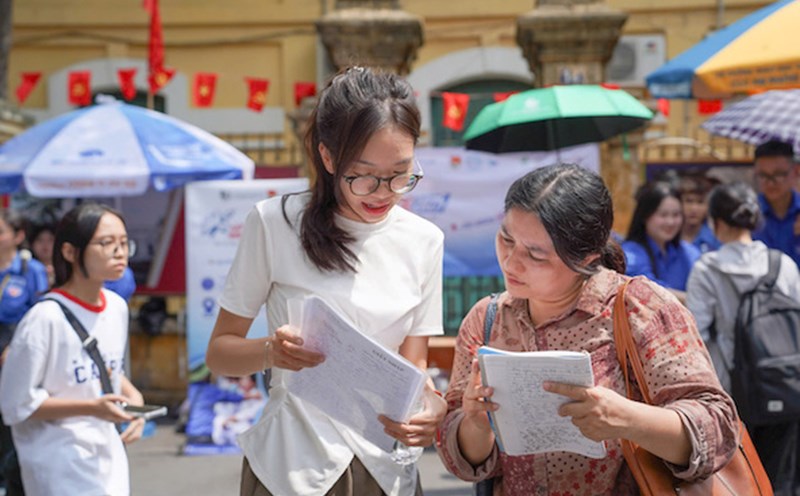Dr. Nguyen Quynh Lien - Member of the Presidium, Head of the Committee for Democracy, Supervision and Social Criticism and Prof. Dr. Tran Ngoc Duong, Chairman of the Council for Democracy and Law Advisory Council chaired the conference.
The conference was attended by experts and scientists from the Advisory Council of the Central Committee of the Vietnam Fatherland Front; leaders of the National Assembly Standing Committee, the Ministry of Education and Training, and specialized departments of socio-political organizations under the Central Committee of the Vietnam Fatherland Front.
Appreciating the quality and spirit of innovation in the draft Law on Vocational Education (amended), Associate Professor, Dr. Hoang Xuan Lam - Member of the Central Committee of the Vietnam Fatherland Front, 10th tenure, commented that this draft shows the great efforts of the drafting agency in building a breakthrough policy system to improve training quality and increasingly better meet the requirements of the labor market.
Associate Professor, Dr. Hoang Xuan Lam said that the layout and structure of the draft consists of 9 chapters with 50 articles arranged logically and reasonably. The basic goals, contents and solutions in the draft have covered the core issues of the vocational education system, ensuring feasibility and in line with the comprehensive innovation orientation in this field.
However, Mr. Lam also noted that some contents need to continue to be improved. In Article 12 on registration of vocational education activities, it is necessary to add a regulation on vocational training institutions having the right to autonomy in opening industry codes for programs granting degrees and certificates if they fully meet the prescribed conditions and pass the quality assessment. This not only helps improve the autonomy of vocational training institutions but also motivates the work of quality accreditation to be more substantial and effective.
It is necessary to add a separate thing about Investors, clarifying the concept, responsibility and authority of this subject in vocational training institutions with socialization factors. This is a necessary requirement to ensure transparency in investment, while avoiding internal conflicts between related parties after the law is promulgated and implemented. Without specific regulations, it is easy to have disputes in the operation of the school as well as cause difficulties for the management of competent authorities, Mr. Lam proposed.
Mr. Nguyen Xuan Phuong - Vice President - General Secretary of the Vietnam Association of Former Teachers said that the Party and State have been emphasizing the role of the private economy in the development of the economy, therefore, Article 5 needs to further clarify the role of businesses in human resource training because in reality, when businesses open vocational schools, they will meet the labor needs of that business itself and they can create new prospects in the labor market in the coming time.
Referring to the reality of 10th grade admissions in recent years, Mr. Phuong said that the development of the draft Law must create a clear change in student orientation because admission activities are still a fierce race and create stress for parents and students.
"One of the reasons for the slow traffic flow is that the investment policy for school construction has not been really invested in, so it is necessary to set standards for public schools and vocational colleges", Mr. Phuong explained and said that it is also necessary to clarify the regulations on training standards for teachers, and specifically qualify their capacity and qualifications to provide a more convenient management facility.
In response to the opinions of delegates at the Conference, Mr. Tran Ngoc Duong suggested that the Drafting Committee should continue to revise the draft content to create new changes in the field of education, the draft law must create connections with the Constitution and Laws related to the field of education and affirm the constitutionality and legality of the draft Law.
The system of institutions participating in vocational education activities must be more specifically regulated; decentralization, delegation of authority and improving the effectiveness of State management of vocational education need to be clarified; training programs need to institutionalize Resolution 57-NQ/TW, especially having a policy to attract high-quality human resources to meet the country's development practices in the current period, Mr. Duong suggested.











